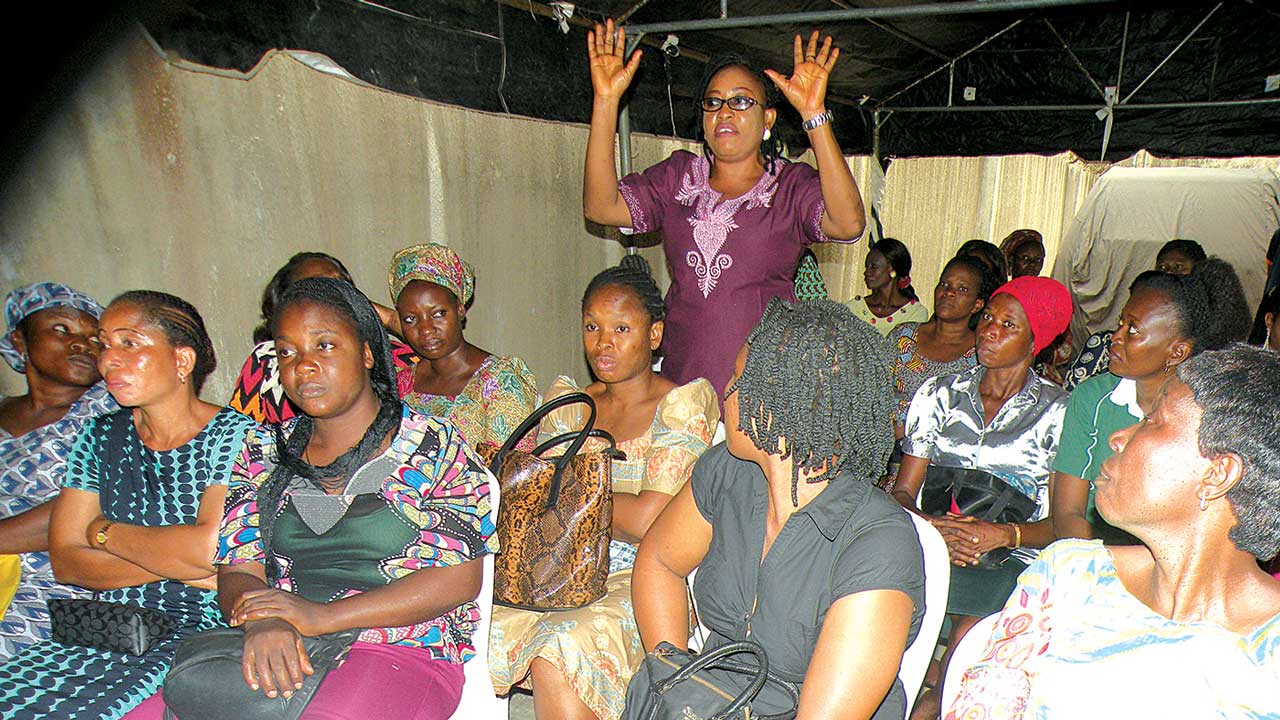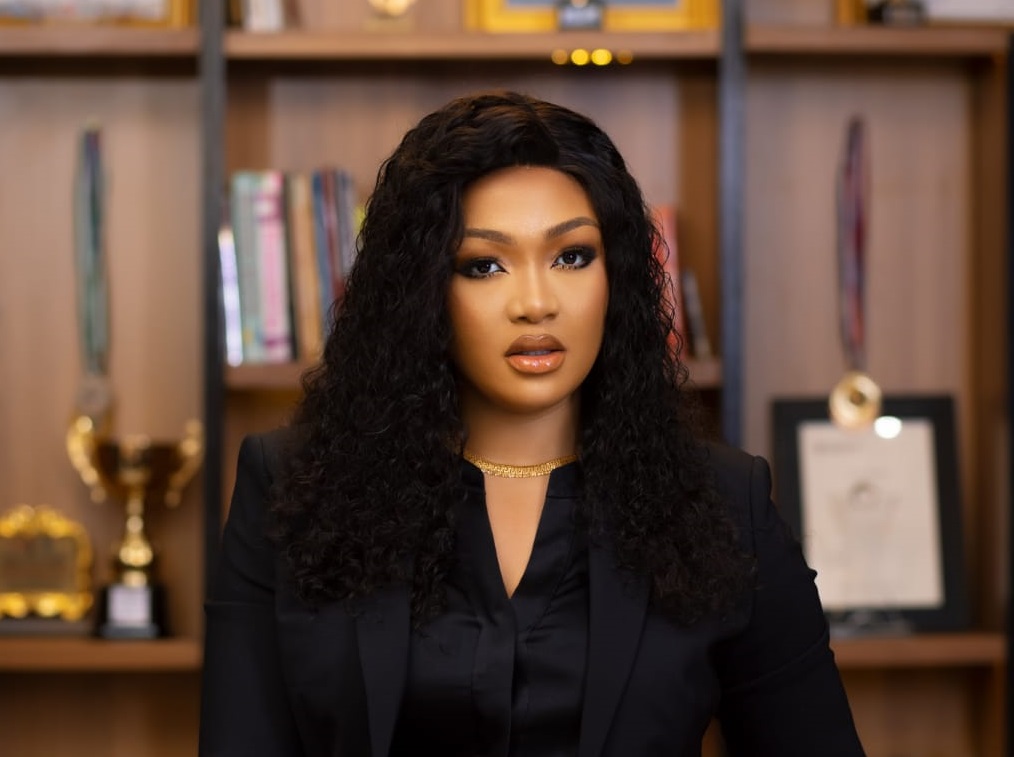
Tagged “Nigeria 2019: Countering Fake News,” the conference was aimed at how to prevent the distortion of facts in the media during and after the pending election.
The conference was attended by Vice President Yemi Osinbajo, Nobel Laureate, Professor Wole Soyinka and a handful of the media panjandrums led by president of the Guild of Editors, Funke Egbemode.
Professor Soyinka warned that the purveyors of fake news could start the Third World War from Nigeria.
He regaled the audience with tales of how these “cowards” and people who are “sick in the head” had manufactured statements and in a manner typical of the born-coward, attributed them to him, the way they had attributed such statements to Robert Mugabe when he was leader of Zimbabwe and Donald Trump of the U.S.
The vice president, on the other hand, recalled how fake news experts once portrayed him as a man with a soft spot for strippers. He had taken pictures one day with some girls, in the normal course of social interaction during public engagement.
But before he could say Holy Ghost fire, the social media experts, obviously to no good end, had stripped one of the girls in the pictures for the world, including Dolapo his wife, to see.
The intention obviously was to portray this man of God in the villa as a man who routinely cavorts with girls of easy virtue.
But the longest running drama, a blockbuster movie, produced and directed by social media gurus, was the alleged double of President Muhammadu Buhari. They had laboured hard to sell the story that the stiff and ramrod General Buhari that Nigerians elected in 2015 as president was no longer the one presiding over the affairs of the country and seeking re-election next month.
The original Buhari was given up as dead in April last year and the cabals in the villa had recruited one Jibril Sudani from Sudan to pose and act like Buhari.
The fake news went viral and even eminent clerics like Pastor David Oyedepo, who failed to understand Olatunji Dare’s satire on the subject in The Nation, in one of his most embarrassing moments on the pulpit, actually prayed for the deliverance of Nigeria and its liberation from the neo-colonialism foisted on us from Sudan of all countries.
Such is the pernicious hold of the social media’s fake news on the psyche of the average Nigerian.
But the more damning variety of fake news, in my view, is the one peddled by officialdom variously characterised as propaganda or information dissemination designed to persuade the citizens but which is nothing but outright falsehood and which in my view, is more injurious than the social media – originated fake news.
These officially sanctioned lies may not have been covered by the mandate of the Abuja conference on fake news.
But we must talk about it otherwise we shall all stand accused of egregious hypocrisy.
The lies that politicians and government officials tell to damage the standing of their opponents is a world-wide phenomenon.
Not many of us may remember the vile propaganda unleashed on Barrack Obama when it became clear that he was on a ride to the White House in 2008 as the first Black man to be elected U.S. president.
The issue of his birth became a political hot cake. Led by Donald Trump, these rabid racialists, driven by crude nationalism, insisted that Obama was not born in U.S. and that he was, in fact, a gravely detested Muslim to the bargain.
The rightist media gave much play to this fake news and it did not let up until the accused Obama redeemed himself by producing his birth certificate.
When the Labour Party was struggling to return to power in Britain in 1997, Tony Blair the leader of the party, resorted to all manner of dirty tricks, not uncommon in British or American politics.
In his first speech to the Labour Party as its leader, he declared that unlike the Conservative Party, “when we make promises, we must keep them.”
In 1997, he repeated the mantra: “The Conservatives’ broken promises taint all politics. That is why we have made our guiding rule not to promise what we cannot deliver and to deliver what we promise.”
Three weeks to the election with the economy soaring higher, under the leadership of the Conservative Party, the rattled Labour Party resorted to the misleading use of official statistics to pooh-pooh Tory party’s achievements.
In his book, The Rise of Political Lying, Peter Orborne exposed Blair, an artful politician, as a man gifted with the art of “saying what he does not mean, and meaning what he does not say.”
Doesn’t the dog fight between PDP and the ruling APC clearly give you a sense of déjà vu?
During the Second Republic with President Shehu Shagari at the helm of affairs as president, a Nigerian politician from Borno State, Abdulrahaman Shugaba Darman, elected on the platform of Great Nigeria People’s Party, was deported to Chad on the order of the Federal Minister of Internal Affairs, Bello Maitama Yusufu in January 1980, victim of fake news which said he was not a Nigerian.
When any government identifies an enemy, it first deploys the official machinery of fake news, as if to give the dog a bad name and then follow it up with human right abuse. It has the luxury of impunity.
The invasion of Trust newspaper house by soldiers can be challenged in any court and it can be proved to be nothing but an abuse of power and the story they put out as justification for the invasion is also nothing but fake news.
It is the same kind of fake news the military regime of President Ibrahim Babangida put out to justify the closure of Newswatch and its ban for six months in April 1987.
An official of government had phoned one of the editors of the magazine on a Saturday prior to publication, to enquire if it was true that the magazine had scooped the political bureau report on the structure of government.
He answered in the affirmative but explained that bits and pieces of the report had been published in various newspapers that week.
The official in question promised to call back. He did not. But on Sunday night as soon as the magazine had been distributed, policemen invaded the premises of the magazine and sealed it up.
The following afternoon government statement on the national network of Radio Nigeria sounded like the declaration of war.
It banned the magazine and claimed falsely that government spent the whole of Saturday appealing to the publishers not to carry the report but to no avail.
Government also claimed falsely that it asked professional bodies and other well-meaning Nigerians to appeal to the publishers but they turned a deaf ear.
One minute of enquiry by a government official became a whole day’s job through the power and instrumentality of government’s fake news apparatus.
Social media may have become a social nuisance spewing out fake news but as two great American presidents at different times had admonished politicians and others who are contesting power with government, don’t shy away from embracing the new medium.
Franklin Roosevelt utilised the radio to advantage and John F Kennedy captured the imagination of the Americans with television.
Today, the social media has turned out to be a potent weapon in the hands of ordinary and not so ordinary Nigerians. But it is a weapon that must be used responsibly and with maximum caution.
[ad unit=2]






